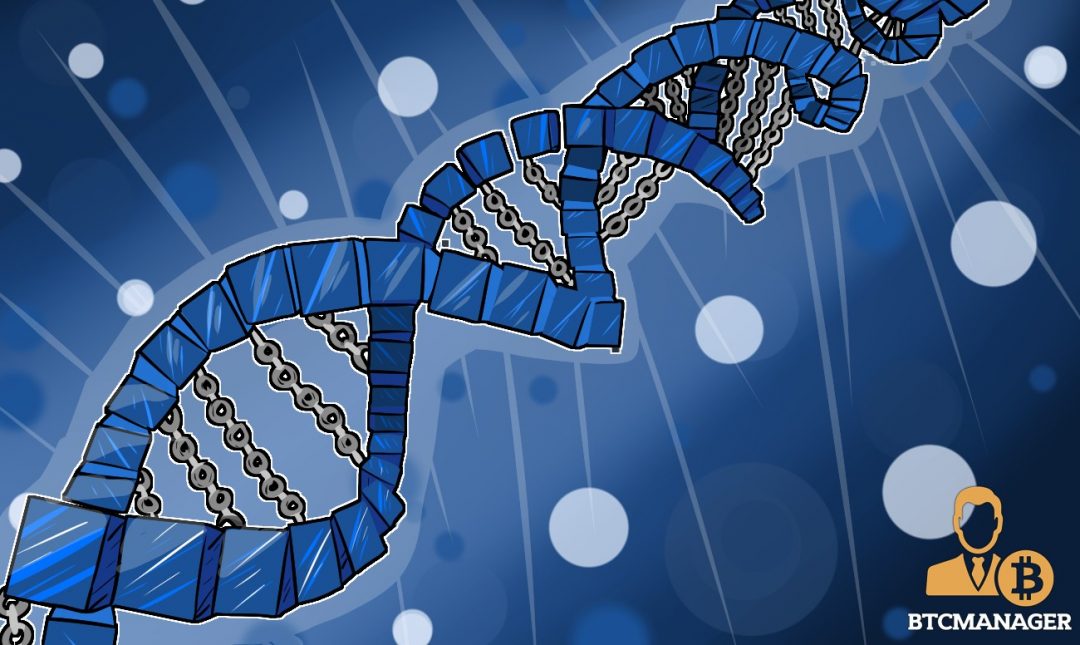Will Blockchain Technology Provide the Solution to Genome Privacy?

Our genomes contain a wide range of valuable information that can help health practitioners to diagnose and prevent illnesses with more precision and effectiveness than ever before. However, there is also the potential for abuse of your genome data if it falls into the wrong hands. Genome privacy is a very real problem that former academic and entrepreneur David Koepsell aims to solve by applying blockchain technology to record and store genome data securely.
Advancements in genomics, a branch of molecular biology that focuses on the structure, function, evolution, and the mapping of genomes, enable us to identify genetic information such an individual’s life expectancy, his or her potential for developing mental illness and even expected intelligence. Genome data can, therefore, be extremely helpful to doctors when it comes to identifying an individual’s ailments or even to treat a patient preemptively.
A major issue that has arisen from these scientific advancements is that information contained in an individual’s genome has the potential for misuse of information. This is a real topic of concern. While it may sound far-fetched that an “evil corporation” or a malevolent government will use a person’ genome data against them, the first steps for that happening were almost taken when US lawmakers proposed a bill that would have given companies the right to ask for their employees genetic testing results.
What makes the issue of genome data privacy worse is the fact that there is currently no legal framework governing genome data security, which means that individuals technically don’t even “own” their own genome data.
To provide a solution for this sensitive and important matter, genome privacy advocate and author of the book ‘Who Owns You’, David Koepsell, stepped out of his comfort zone of academia to launch the software company Encrypgen LLC together with his partner Dr Vanessa Gonzalez. Florida-based Encrypgen aims to make use of blockchain technology to record and securely store genome data to empower patients and donors to facilitate health, business and science.
In an interview, Koepsell told Forbes why genome data privacy and security is such an important issue stating:
“Genomic data is extremely sensitive. Most people are not aware that your DNA contains information about your life expectancy, your proclivity to depression or schizophrenia, your complete ethnic ancestry, your expected intelligence, maybe even your political inclinations. Within a decade or two, your genome will likely reveal even more.”
Imagine being denied health insurance because your genes are more susceptible to cancer or not being able to gain a promotion at work because your genetic code and skill set does not fit with the requirements. Genomic data has the potential for abuse in many unexpected ways by corporations and governments. As a result, there is a strong need for privacy, not just for the benefit of individuals but also for scientific progress; individual genomic data can help researchers create better treatments for particular groups and improve understanding of the role genetics plays in diseases.
Koepsell could have gone down the academic route to work on a solution for this pressing issue. However, when he come across blockchain technology, he decided against applying for academic research grants and, instead, hired a developer, sought out seed funding, and launched a blockchain startup that will work on distributed ledger solutions to store genome data to prevent unrightful access to individuals’ genomes.
The result of Encrypgen’s work is called Gene-Chain, which will be debuted at the BIO-IT World Conference & Expo on May 23 in Boston. Gene-Chain is an encrypted cloud-based distributed ledger that stores genomics data for science and medicine.
On the benefits of the Gene-Chain, Koepsell told Forbes:
“…it will be a safe place to store […] genomic data. If you get tested and want to always be able to access that data, then store it on the Gene-Chain free of charge. On the Gene-Chain, your data is virtually unhackable, encrypted, and you can provide a time-limited key to your doctor or others with whom you want or need to share the data.”
As the blockchain is one of the safest technologies that can be found when it comes to recording and storing large amounts of data, it is an excellent software to use for the safekeeping of genomic data. Furthermore, the distributed ledger technology enables permissioned users with the access keys to view parts of data while other parts remain hiding. This, in turn, makes genome data stored on the blockchain accessible to scientific researchers while keeping the identities of genome data donors anonymous.
“[…] Scientists […] will have access to the metadata – the data about the data, such as age, ethnicity, gender, etc. – and can search for potential subjects whose data might be useful and interesting for their studies. That search reveals nothing specific or personal about the donor, and it does not give them access to the genomic data itself. But they can make a request to the donor, who can then choose whether to allow its use, negotiate terms for getting paid for that use (possibly), and finally go through the ethical consent procedure necessary for their particular jurisdiction,” Koepsell elaborated about the Gene-Chain.
While blockchain technology is currently in the process of revamping major global industries such as banking, supply chain management, and the music industry, it is very encouraging to see the distributed ledger technology being applied to areas that have a fundamentally positive impact on society and individuals’ well-being.
The closer we get to the $100 genome, the higher the chance for genome data abuse becomes. By developing genome data storage solutions based on blockchain technology we as private individuals can benefit from knowing our genome data and being able to share it with our health practitioners without having to worry about the potential misuse of our data. The development of Gene-Chain is the first technological step to making that a reality.














